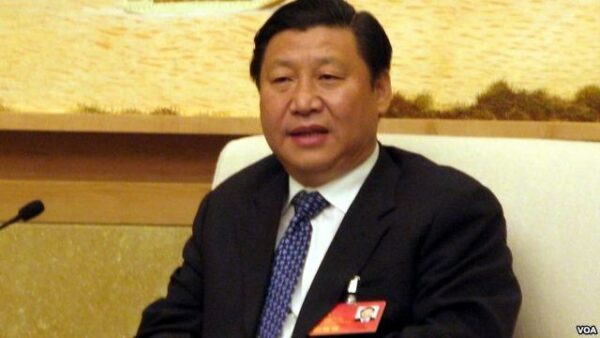Amid deepening economic unrest in China and the mounting toll of American tariffs, two Republican lawmakers are urging the Securities and Exchange Commission to sever financial ties with some of the country’s most prominent tech giants, according to new reports. Representative John Moolenaar and Senator Rick Scott have called on the SEC to delist 25 Chinese firms—including Alibaba, Baidu, JD.com, and Weibo—citing national security threats and the companies’ alleged entanglements with the Chinese Communist Party’s military-industrial ambitions. The lawmakers invoked the Holding Foreign Companies Accountable Act, warning that continued access to U.S. capital markets enables the CCP to leverage American investment to fund authoritarian objectives and systemic human rights abuses.
Their letter to SEC Chair Gary Gensler emphasized the sheer scale of the risk. With a collective market capitalization approaching $1 trillion, these firms represent not just financial exposure but, in the lawmakers’ view, a direct pipeline through which American investors may be “inadvertently supporting the CCP’s military and surveillance state.” The proposed delisting would mark a significant escalation in the ongoing effort to decouple U.S. markets from China’s increasingly state-directed economy—a move that now unfolds against a backdrop of extraordinary social upheaval inside China itself.
From the industrial outskirts of Shanghai to the far reaches of Inner Mongolia, Chinese workers are taking to the streets in growing numbers. Thousands of former employees at a shuttered LED factory near Shanghai have rallied to demand unpaid wages, explained New Conservative Post. In Dao County, workers from a defunct sporting goods plant protested after being denied severance. And in the northern city of Tongliao, unpaid construction workers climbed rooftops and threatened suicide. The flashpoints are multiplying as the social contract unravels. With Chinese export orders now at their lowest point since the height of the COVID-19 lockdowns, Goldman Sachs warns that up to 16 million jobs may be at risk—many of them in regions once buoyed by foreign demand.
The economic fallout is testing the limits of Beijing’s ability to project control. Though China has long relied on access to American capital to bankroll its technology sector, Washington’s strategic posture is shifting. Bipartisan skepticism over whether Chinese firms operate independently—or serve as appendages of the state—has turned once-welcomed listings into potential liabilities. Delisting would accelerate the unraveling of U.S.-China financial entanglement, drawing a sharper boundary between the two nations’ economic systems and political worldviews.
For Xi Jinping’s government, the stakes are existential. The combination of capital flight, export collapse, and worker unrest poses a multifaceted threat—not just to economic growth, but to regime legitimacy. President Donald Trump, whose tariffs catalyzed the current crisis, recently framed the confrontation in stark terms: “They were making a trillion dollars a year off us. That’s over now.” As global investors reassess risk and Chinese citizens confront the erosion of economic security, China’s leadership is being pulled in opposing directions—toward nationalist defiance and pragmatic retreat—without a clear path forward.
[Read More: Cabinet Member Uncovers Ridiculous Grants From Biden]










